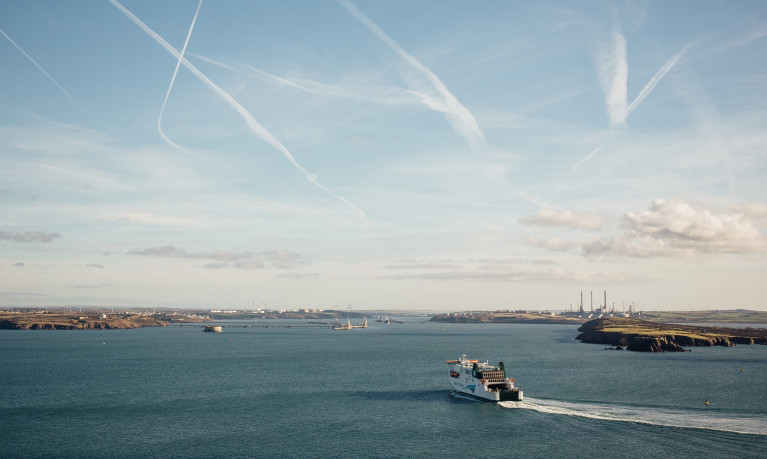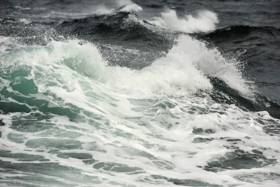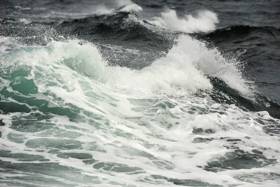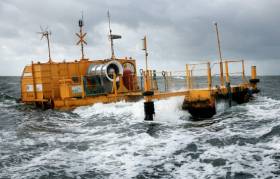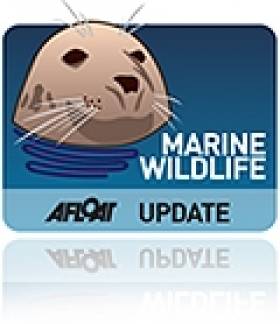Displaying items by tag: marine energy
In south Wales's Pembrokeshire region, a £60 million marine energy project that will help tackle climate change while reviving the local economy in the wake of Covid-19 has been given the green light.
The UK Government and Welsh Government have now approved the business case for the Pembroke Dock Marine project, which is expected to generate £73.5 million a year to the Swansea Bay City Region’s economy.
Pembroke Dock Marine is led by the private sector, with support from Pembrokeshire County Council. The project is expected to generate more than 1,800 jobs in the next 15 years.
The project is made up of four elements:
• The Marine Energy Test Area within the Milford Haven Waterway led by Marine Energy Wales, enabling technology developers to test their marine energy devices close to their base of operation
• The largest facility of its kind in the world, a 90 square kilometre Pembrokeshire Demonstration Zone delivered by Wave Hub Limited that will enable the deployment of future energy generating technologies, including floating wind
• Marine Energy Engineering Centre of Excellence - a technology, innovation and research centre delivered by the Offshore Renewable Energy (ORE) Catapult
• Redevelopment of land at Pembroke Dock, led by the Port of Milford Haven (see latest), to deliver the infrastructure needed by the industry as it continues to mature
For much more on this major development click here
While across the sea at Rosslare Europort which is served by Irish Ferries from Pembroke Dock, Afloat reported last month a Dutch company which is to establish an offshore wind supply base at the Co. Wexford ferryport.
Foreshore Lease Approved For Galway Bay Marine Energy Test Site
#GalwayBay - In a major boost for the marine energy sector, the Government has approved a 35-year foreshore lease for an upgraded test site in Galway Bay off Spiddal.
Galway Bay FM reports on yesterday’s (Tuesday 19 December) announcement that paves the way for a quarter-scale renewable energy testing facility for wind and wave devices to be established on the site, which has been used to test new technology since 2006 and which is expected to further the aims of the Harnessing Our Ocean Wealth Strategy.
In a nod to local concerns over the project — which received more than 500 submissions in a public consultation last year — the site will be restricted to hosting a single floating wind energy device at ant given time, among other conditions.
Galway Bay FM has more on the story HERE.
Spiddal Marine Energy Test Site Plans Attract More Than 500 Submissions
#GalwayBay - More than 500 submissions were lodged during last year’s public consultation on proposals to upgrade the marine energy test site in Galway Bay off Spiddal.
And according to the Connacht Tribune, many voiced serious concerns over the project’s potential impact on Galway Bay.
As previously reported on Afloat.ie, the Marine Institute had applied to the Department of the Environment, Community and Local Government for a foreshore lease for the site where prototype marine and renewable energy technology would be tested at reduced scale.
The consultation period, which closed on 17 June last, was accompanied by a public information evening on the project and its ambitions.
However, the Connacht Tribune reports that the response from local businesses and communities has been largely negative.
One fisherman expressed his fear that the lease area could be expanded into prawn grounds already reduced by the original lease for the site a decade ago.
Other concerns include the 35-year period of the lease, the scope and veracity of information provided, and the lack of an Environmental Impact Statement, as well as the impact on tourism on the Wild Atlantic Way in South Connemara.
The Connacht Tribune has more on the story HERE.
#PowerFromTheSea - Ireland could be central to the mainstreaming of ocean energy over the next 35 years, according to a new report from the emerging industry.
As The Irish Times reports, the Marine Renewables Industry Association (MRIA) maintains a healthy outlook for the development of wave and tidal energy projects despite revising its predictions for the next decade.
Though "technical challenges" remain in offshore renewables for both wave and wind power generation, Ireland has been marked for "generally strong" policy in the area – and has been encouraged to work with Scotland towards closing the funding gap between research and commercial application.
That view chimes with news from the Maritime Journal, which says Ireland's marine energy market could be worth €15 billion by 2050.
Singled out for its significant contributions in the sector is the SFI Research Centre, Marine Renewable Energy Ireland (MaREI) at University College Cork (UCC), which also houses the Lir National Ocean Test Facility.
That's one of a number of Irish 'innovation hubs' involved in exploring the potential benefits of ocean energy, as previously reported on Afloat.ie – and as discussed at the recent symposium of marine energy leaders in Cork.
Marine Journal has much more on the story HERE.
West Cork Weekends Will Bring You Closer To Marine Wildlife
#MarineWildlife - If you've ever wanted to get closer to Ireland's marine wildlife, a new series of weekend excursions in West Cork may be just the ticket.
The Southern Star reports on the 'Discover Wildlife Weekends' being run from Rosscarbery by local company Ireland's Wildlife starting this April, where those taking part will be led by expert guides to explore the coastal region and have the best opportunities to spot the many species of whales and dolphins that visit our shores.
Weather permitting, the weekends will also involve some offshore whale watching in the company of 'whale watch supremo' Colin Barnes and the Irish Whale and Dolphin Group's (IWDG) sightings co-ordinator Pádraig Whooley.
And birdwatching will also be a feature, as West Cork is a hotspot for our feathered friends - from merlins and peregrine falcons to coastal waders and more exotic fowl that skirt our coasts on their spring migrations.
The Southern Star has much more on the story HERE.
Meanwhile, marine sector stakeholders have expressed their concerns over the designation of six new offshore marine areas by the National Parks and Wildlife Service.
As previously reported on Afloat.ie, the six sites at Blackwater Bank in Wexford, the West Connacht coast, Hempton's Turbot Bank in Donegal, the Porcupine Bank Canyon off Kerry, the South-East Rockall Bank, and the stretch from Rockabill to Dalkey Island off Dublin have been proposed for designation as Special Areas of Conservation (SACs) to protect marine habitats and species listed on the 1992 EU Habitats Directive.
But at a recent meeting at the Irish Farm Centre in Dublin, a coalition of fish farmers, fishermen and marine energy stakeholders have hit out at what they characterise as "the appalling handling of inshore designations since the 1990s by the State", which they claim "has resulted in hundreds of job losses and a flight of serious investment" from Ireland's coastal areas.
“Our experience of the Irish Government’s application of the EU Habitats Directive has been a saga of mismanagement, foot dragging and buck-passing which has left over 500 fish farming licences in limbo for over 10 years and a backlog of red tape and bureaucracy which could see producers waiting until 2020 and beyond for simple renewals which are vital to underpin their businesses," said IFA aquaculture executive Richie Flynn.
"These new offshore SACs will have the same effect of preventing any fishing, marine energy or aquaculture being carried out in these areas if left in the hands of the same agencies to manage."


























